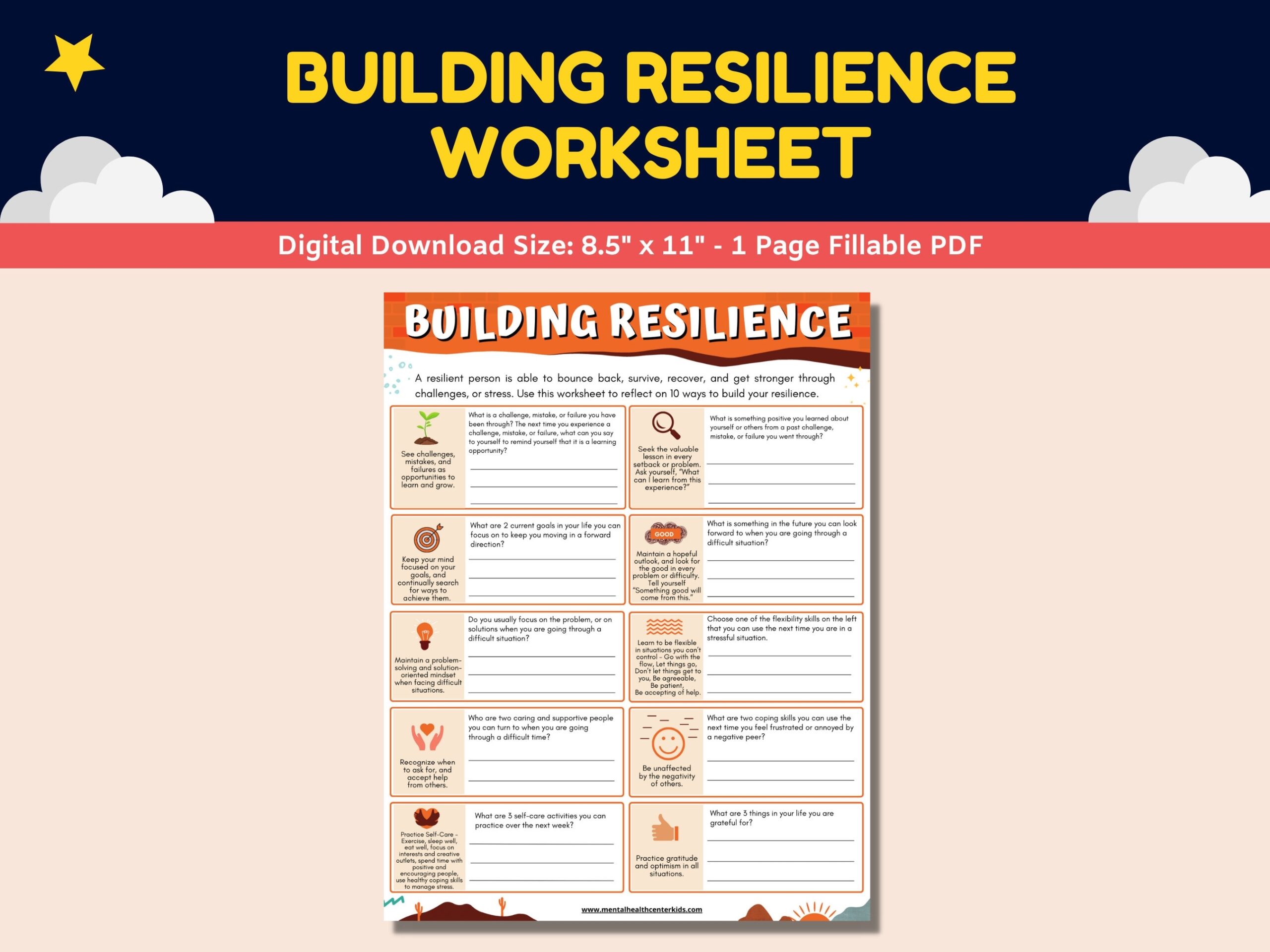Resilience & Mental Health: Overcoming Adversity

Table of Contents
Understanding Resilience: What it is and Why it Matters
Defining Resilience:
Resilience is the ability to bounce back from adversity, cope effectively with stress, and adapt to change. It's not about avoiding hardship, but about navigating it with strength and grace. Imagine a willow tree bending in a strong wind – it doesn't break; it flexes and recovers. That's resilience in action.
- Optimism: Resilient individuals maintain a positive outlook even in difficult times.
- Problem-solving skills: They approach challenges with a proactive and solution-oriented mindset.
- Strong social support: They have a network of supportive friends, family, and community members.
- Self-efficacy: They believe in their ability to cope with challenges and overcome obstacles.
- Adaptability: They are able to adjust to changing circumstances and find new ways to cope.
Research consistently demonstrates the positive impact of resilience on mental health outcomes. Studies show that individuals with higher levels of resilience experience lower rates of depression, anxiety, and post-traumatic stress disorder (PTSD).
The Neuroscience of Resilience:
Resilience isn't just a psychological trait; it's also rooted in the brain's remarkable ability to adapt and heal. When we face adversity, our brains release stress hormones like cortisol. However, resilient individuals demonstrate a more regulated stress response, minimizing the negative impact of these hormones.
- Neuroplasticity: The brain's ability to reorganize itself by forming new neural connections allows us to learn and adapt, even after trauma.
- Prefrontal cortex: This area of the brain plays a crucial role in regulating emotions, planning, and decision-making, all vital for navigating challenging situations.
- Hippocampus: Involved in memory consolidation, the hippocampus can be impacted by prolonged stress, but resilience fosters its ability to recover and function effectively.
Building Resilience: Practical Strategies and Techniques
Developing a Strong Support System:
Social connection is a cornerstone of resilience. Having a network of supportive individuals to lean on during difficult times is invaluable.
- Nurture existing relationships: Spend quality time with loved ones, communicate openly, and actively listen to their concerns.
- Seek new connections: Join clubs, volunteer, or participate in activities that align with your interests to meet like-minded people.
- Join support groups: Connecting with others who share similar experiences can provide comfort, validation, and practical advice.
- Seek professional help: Therapists and counselors can provide guidance and support in building resilience and coping with mental health challenges.
Cultivating Self-Care Practices:
Self-care isn't selfish; it's essential for building resilience. Prioritizing your physical and mental wellbeing empowers you to handle stress more effectively.
- Regular exercise: Physical activity releases endorphins, which have mood-boosting effects.
- Healthy eating: Nourishing your body with wholesome foods provides the energy and nutrients needed to cope with stress.
- Sufficient sleep: Adequate sleep allows your brain and body to rest and repair.
- Mindfulness and meditation: These practices promote self-awareness and reduce stress.
- Relaxation techniques: Deep breathing exercises, progressive muscle relaxation, and yoga can help manage stress and anxiety.
Mastering Cognitive Restructuring:
Negative thoughts can amplify stress and hinder resilience. Cognitive restructuring involves identifying and challenging these thoughts, replacing them with more positive and realistic ones.
- Identify negative thought patterns: Pay attention to your inner dialogue and notice recurring negative thoughts.
- Challenge negative thoughts: Ask yourself if there's evidence to support these thoughts, and consider alternative perspectives.
- Replace negative thoughts with positive affirmations: Reframe negative thoughts into more constructive and empowering statements.
- Cognitive Behavioral Therapy (CBT): This evidence-based therapy helps individuals identify and modify negative thought patterns and behaviors.
Embracing Mindfulness and Acceptance:
Mindfulness involves paying attention to the present moment without judgment. This practice can significantly improve stress management and emotional regulation.
- Mindful breathing: Focusing on your breath can anchor you in the present and reduce feelings of overwhelm.
- Body scan meditation: Paying attention to sensations in your body can increase self-awareness and reduce tension.
- Mindfulness apps: Utilize apps like Headspace or Calm to guide you through mindfulness exercises.
- Acceptance: Learning to accept challenging situations, rather than fighting against them, can reduce stress and foster a sense of peace.
Resilience & Specific Mental Health Challenges
Resilience and Anxiety:
Resilience plays a vital role in managing anxiety. By developing coping skills and a positive mindset, individuals can reduce the frequency and intensity of anxiety symptoms.
- Exposure therapy: Gradually facing feared situations can reduce anxiety over time.
- Relaxation techniques: Deep breathing, progressive muscle relaxation, and meditation can help calm anxiety symptoms.
- Cognitive restructuring: Challenging anxious thoughts can reduce their power.
Resilience and Depression:
Building resilience can be crucial in recovering from depression and preventing relapse. It empowers individuals to take proactive steps towards their wellbeing.
- Engage in enjoyable activities: Participating in activities that bring you joy can boost your mood and increase your sense of purpose.
- Set realistic goals: Breaking down large tasks into smaller, manageable steps can increase your sense of accomplishment.
- Practice self-compassion: Treat yourself with kindness and understanding, especially during difficult times.
Resilience and Trauma:
Healing from trauma requires professional support, and resilience plays a key role in the recovery process. It helps individuals process their experiences and move forward.
- Trauma-informed therapy: This type of therapy helps individuals process traumatic experiences in a safe and supportive environment.
- EMDR (Eye Movement Desensitization and Reprocessing): This therapy can help reduce the emotional impact of traumatic memories.
- Support groups: Connecting with others who have experienced trauma can provide a sense of community and shared understanding.
Conclusion
Resilience & mental health are inextricably linked. By understanding the principles of resilience and actively cultivating resilience-building strategies, you can navigate life's challenges with greater strength, adaptability, and emotional wellbeing. Remember, building resilience is an ongoing process, not a destination. Start building your resilience today through self-care, strong social connections, and the development of effective coping mechanisms. Discover the power of resilience for your mental wellbeing. Invest in your mental health by strengthening your resilience. For further resources and support, explore reputable mental health organizations and self-help tools online.

Featured Posts
-
 Remont Pivdennogo Mostu Khto Skilki Ta Koli
May 21, 2025
Remont Pivdennogo Mostu Khto Skilki Ta Koli
May 21, 2025 -
 Decision Delayed Ex Tory Councillors Wifes Racial Hatred Tweet Appeal
May 21, 2025
Decision Delayed Ex Tory Councillors Wifes Racial Hatred Tweet Appeal
May 21, 2025 -
 The New Mexico Gop Arson Attack And Allegations Of Censorship By Abc Cbs And Nbc
May 21, 2025
The New Mexico Gop Arson Attack And Allegations Of Censorship By Abc Cbs And Nbc
May 21, 2025 -
 Qbts Stock And Upcoming Earnings What To Expect
May 21, 2025
Qbts Stock And Upcoming Earnings What To Expect
May 21, 2025 -
 Real Madrid Manager Rumours Klopps Agent Speaks Out
May 21, 2025
Real Madrid Manager Rumours Klopps Agent Speaks Out
May 21, 2025
